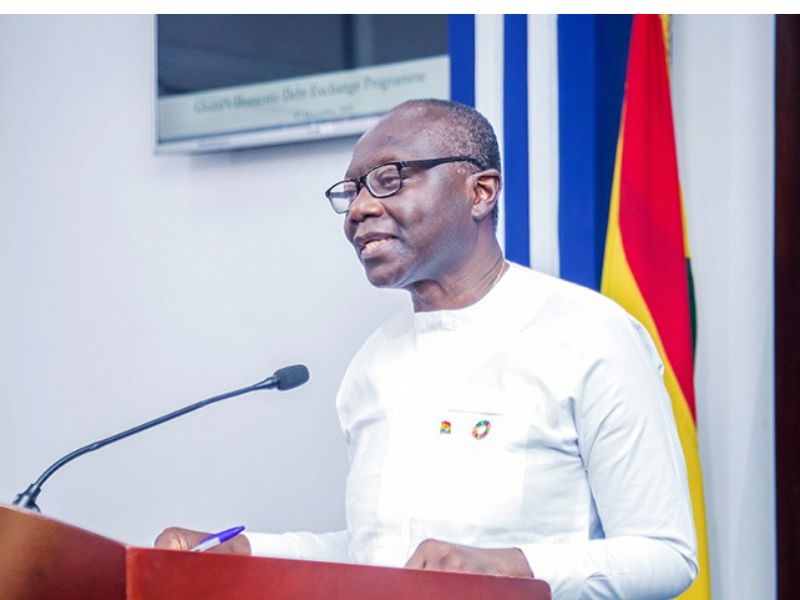To ensure that Ghana is able to restore its capacity in servicing its debt, the Ministry of Finance yesterday launched the country’s Domestic Debt Exchange programme.
The Minister of Finance indicated that under the program, there will be an exchange for new Ghana bonds, with a coupon that steps up to 10%.
“Existing domestic bonds as of 1st December 2022 will be exchanged for a set of four new bonds maturing in 2027, 2029, 2032 and 2037,” the Minister said.
Mr. Ofori-Atta noted that this domestic debt exchange is part of a more comprehensive agenda to restore debt and financial sustainability.
The second measure Mr Ofori-Atta announced under the program was the restructuring of Ghana’s external indebtedness. He said more updates in this measure will be announced in due course.
Thirdly, he reiterated that under the program, there will be no principal haircut on eligible Bonds. He explained that by this no haircut concept, individual holders of domestic bonds are not affected and will not lose the face value of their investments. He outlined these measures at a press conference held at the Ministry of Information in Accra yesterday.
Ghana’s Debt Situation
Giving reasons for the need to pursue the measures vigorously to get the country out of the woods, Minister Ofori-Atta said a Debt Sustainability Analysis (DSA) has demonstrated that Ghana’s public debt is unsustainable, and that the Government may not be able to fully service its debt down the road, if no action is taken.
He pointed out that debt servicing is now absorbing more than half of total government revenues and almost 70% of tax revenues, while total public debt stock, including that of State-Owned Enterprises and all, exceeds 100% of our GDP.
He said this was occasioned by the Covid-19 pandemic, rising global food prices, rising crude oil & energy prices as well as the Russia-Ukraine war.
“This is why we are today announcing the debt exchange which will help in restoring our capacity to service debt,” the Minister said.
Benefits to be derived
The Minister stated specifically that some of the aforementioned measures will allow Ghana’s economy to recover as fast as possible from the economic crisis and also secure an IMF support.
“We are confident that with the measures we are putting in place, including those outlined in the 2023 Budget Statement and underpinned by a successful IMF programme, Ghana will witness a stable and thriving economy from 2023.”
He also envisaged that it will bring inflation to a single digit to ensure that real returns on the new bonds will be protected. The Minister also indicated that the measures will help restore macro-economic stability, achieve debt sustainability and get the economy fully back on track in order to create and protect jobs, provide and enhance incomes, foster strong and inclusive growth led by exports, and restore hope to the people of Ghana. He noted that the overall objective is to alleviate the debt burden in a most transparent, efficient, and expedited manner.
Steps taken by government
The Minister noted that before the government extends a call on others to help, it had to ensure it has also taken some steps to see the success of the program. Mr Ofori-Atta said the government has created a Financial Stability Fund (FSF) where banks, pension funds, insurance companies, fund managers, and collective investment schemes will be supported to ensure that they are able to meet their obligations to their clients as they fall due.
He also said the government has dialogued extensively with regulators across the Financial Sector including Securities and Exchange Commission (SEC), National Insurance Commission (NIC) and National Pensions Regulatory Authority (NPRA) to agree that regulatory forbearance will be provided to all entities whose financial position is adversely affected by virtue of participating in the exchange.
A call for support
Minister Ofori-Atta observed that the benefits that the country stands to gain from the debt restructuring measures can only be achieved through the active participation of all key economic actors and hence called upon all domestic debt holders to take their share in ensuring that public debt sustainability is quickly restored by participating in the exchange programme.









